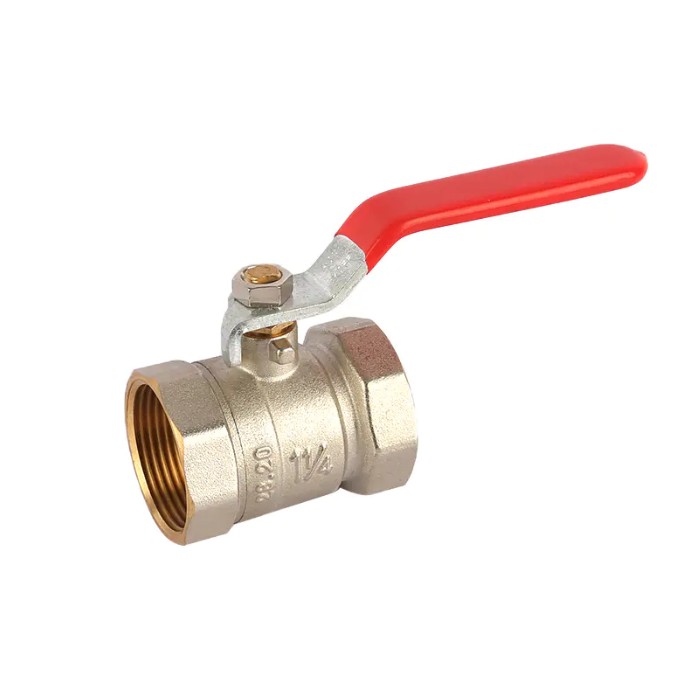One of the key advantages of brass ball valves is their ability to provide precise and efficient flow control. With a quarter-turn operation, these valves offer quick and easy on/off functionality, allowing for immediate adjustments to the flow rate. The unrestricted flow path through the ball minimizes pressure drop, ensuring optimal flow characteristics. This makes brass ball valves suitable for applications that require precise control over the flow of liquids or gases, such as in plumbing systems, industrial processes, and irrigation systems.
Brass is known for its excellent corrosion resistance properties, making brass ball valves highly resistant to rust and other forms of corrosion. This characteristic ensures the longevity and reliability of the valves, even in harsh or corrosive environments. Brass ball valves are often used in water distribution systems, heating systems, and industrial applications where exposure to moisture or corrosive substances is a concern. The corrosion-resistant nature of brass allows these valves to maintain their functionality over an extended period, reducing the need for frequent replacements.
Brass ball valves find widespread use in a variety of industries and applications. They are commonly employed in plumbing systems, where they regulate the flow of water in residential, commercial, and industrial buildings. Brass ball valves are also utilized in gas pipelines, fuel lines, oil refineries, and chemical processing plants, thanks to their compatibility with a wide range of liquids and gases. Furthermore, their reliable performance and ease of operation make them suitable for use in HVAC systems, fire sprinkler systems, and irrigation systems.
Brass ball valves are designed for easy installation and maintenance. Their threaded ends allow for a secure and leak-free connection to the pipes. The valves can be easily disassembled for maintenance or repair, ensuring minimal downtime. Routine maintenance involves inspecting the ball and seals for any signs of wear or damage and replacing them if necessary. The straightforward maintenance procedures and availability of replacement parts make brass ball valves a practical choice for both professionals and DIY enthusiasts.
Brass ball valves offer an excellent balance between performance and cost-effectiveness. Compared to valves made from other materials, such as stainless steel or bronze, brass ball valves are generally more affordable while still providing reliable performance. Their durability and resistance to corrosion contribute to a longer lifespan, reducing the need for frequent replacements. The cost-effectiveness of brass ball valves makes them a popular choice for a wide range of applications, particularly in plumbing and industrial sectors.


 English
English русский
русский Deutsch
Deutsch












